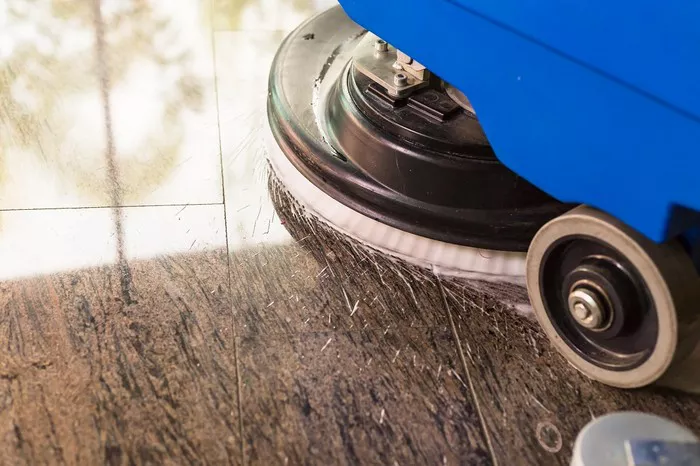Grout, while essential for keeping tiles in place and providing a finished look to tiled surfaces, requires regular maintenance to keep it clean and intact. Its porous nature makes it susceptible to damage if not cleaned properly. In this comprehensive guide, we’ll delve into the composition of grout, identify common damaging agents, provide safe alternatives for cleaning, offer effective cleaning techniques, suggest preventive measures, recommend products, and provide insights from industry professionals on grout maintenance. By the end, you’ll be equipped with the knowledge to keep your grout clean and pristine without causing harm.
Exploring Grout Composition
Grout, typically made of cement, water, and sometimes sand or other additives, serves as a bonding agent between tiles. Its porous composition allows for the absorption of liquids and particles over time, making it prone to staining and discoloration if not properly maintained. The porous nature of grout is what makes it both essential and vulnerable in tiled surfaces.
Understanding the Susceptibility to Damage
The porosity of grout renders it susceptible to damage from various substances. When certain cleaners are applied, they can penetrate the pores, causing discoloration, weakening of the structure, or even erosion. Additionally, harsh scrubbing techniques can exacerbate damage by wearing down the grout’s surface and making it more susceptible to further staining and deterioration.
Identifying Common Damaging Agents
Several household cleaners contain ingredients that are harmful to grout. Among the most damaging are bleach, ammonia, and acidic cleaners. Bleach, a powerful disinfectant, can break down the bonds within grout and cause it to deteriorate over time. Ammonia, often found in all-purpose cleaners, can have a similar corrosive effect on grout. Acidic cleaners, such as those containing vinegar or lemon juice, can etch away at the grout, leading to permanent damage and discoloration.
Safe Alternatives for Cleaning Grout
Fortunately, there are safer alternatives for cleaning grout effectively. Baking soda, when mixed with water to form a paste, acts as a mild abrasive that can lift dirt and stains from grout without causing damage. Hydrogen peroxide, a natural disinfectant, can be used to bleach and sanitize grout without the corrosive effects of chlorine bleach. These alternatives provide effective cleaning power without compromising the integrity of the grout.
Effective Cleaning Techniques
When cleaning grout, it’s essential to use gentle techniques to avoid causing damage. Begin by applying the chosen cleaning solution to the grout lines and allowing it to sit for several minutes to penetrate stains. Then, using a soft-bristled brush or a toothbrush, gently scrub the grout in a circular motion to lift dirt and grime. Rinse the area thoroughly with water to remove any remaining residue. Repeat the process as needed until the grout is clean and restored to its original color.
Preventive Measures for Grout Maintenance
To prevent grout damage and maintain cleanliness, incorporate daily or weekly routines into your cleaning regimen. Sweep or vacuum tiled surfaces regularly to remove dirt and debris that can settle into the grout lines. Wipe down countertops and shower walls after each use to prevent the buildup of soap scum and mildew. Additionally, consider applying a grout sealer annually to protect against stains and moisture penetration.
Product Recommendations for Safe and Effective Cleaning
When selecting cleaning products for grout, opt for those specifically formulated for use on tile and grout surfaces. Look for non-toxic, pH-neutral cleaners that are safe for both the grout and surrounding tiles. Some reputable brands offer eco-friendly options that are effective at removing stains without causing harm. Be sure to follow the manufacturer’s instructions carefully and test any new product in a small, inconspicuous area before applying it to the entire surface.
Insights from Industry Professionals
Industry professionals stress the importance of proper grout maintenance to prolong the lifespan of tiled surfaces. They recommend avoiding harsh chemicals and abrasive cleaning techniques that can cause irreversible damage. Instead, they advocate for regular cleaning with gentle solutions and preventive measures to protect grout from staining and deterioration. By investing time and effort into grout maintenance, homeowners can preserve the beauty and functionality of their tiled surfaces for years to come.
Conclusion
In conclusion, maintaining grout requires a delicate balance of effective cleaning techniques and preventive measures to ensure its longevity and appearance. By understanding the composition of grout, identifying common damaging agents, and implementing safe alternatives and cleaning techniques, homeowners can keep their grout clean and pristine without causing harm. With regular maintenance and the right products, grout can remain a durable and attractive element of tiled surfaces for years to come.

